NIL
Amateur Hour Is Over: College Athletes Can Get Paid by Schools
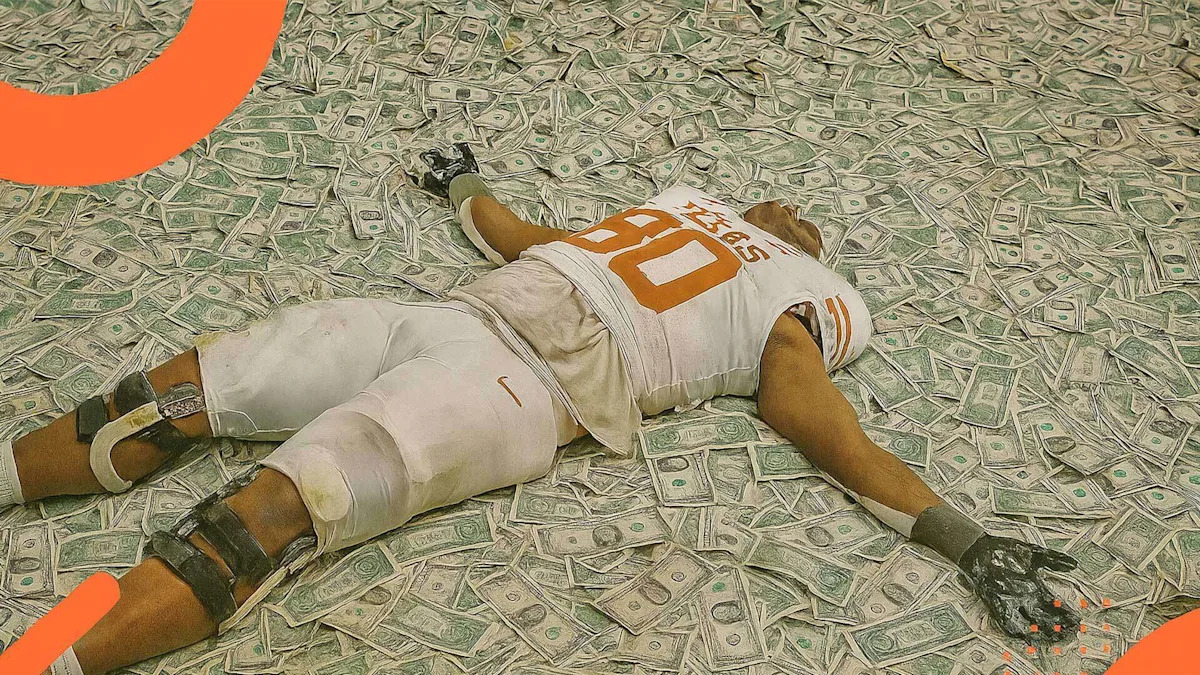
Good morning and welcome to another edition of Free Agent! Hold onto your buckets and your babies—this might be a wild ride.
College sports is officially entering a new era. Amateurism is over and professionalism is (mostly) here. Athletes can officially get paid directly by their schools without a workaround involving boosters or a name, image, and likeness (NIL) collective. Instead of our usual format, the newsletter this week is focused on this monumental change.
Advertisement
But first, I want to thank everyone who voted in our survey last week about who you’re rooting for in the NBA and NHL finals. Free Agent readership was surprisingly evenly split in both series. Shoutout to the fan who said “Seattle kid. Anyone but Thunder.” You’ll have your team soon, I’m sure. As for hockey, I was amused by this response: “I want Ron Desantis to have more Stanley Cups than Canada.” Three down, 40 to go.
Late on Friday, a federal judge gave final approval to a settlement in House v. NCAA, bringing to an end three antitrust cases against the NCAA and power conferences. It’s a huge change: Starting July 1, college sports will spend a decade (at least) in a revenue-sharing system, with schools directly paying athletes for their NIL. Next school year athletic departments will be allowed to pay a combined $20.5 million to athletes across all their sports, with the number rising in the future. (The NCAA and power conferences will also pay almost $2.8 billion in damages to athletes who, dating back to 2016, weren’t allowed to sign NIL deals.)
Advertisement
I talked to Mit Winter, an NIL attorney at Kennyhertz Perry, about how all of this is going to work. Hopefully this answers all the questions you might have about the new system, although a lot of it is still in limbo. I’ve been following this closely and I still learned a lot from our conversation. If you have lingering questions, email me at freeagent@reason.com and I’ll try to figure out an answer for you.
Q: With final approval of the House settlement, colleges will be able to directly pay athletes for the first time. Give us a brief breakdown of how these payments are going to work.
A: Looking forward for college athletics, schools will be able to directly pay their athletes NIL compensation. So they are actively entering into contracts now with their athletes that spell out, “All right, here’s how much we are going to pay you for the use of your NIL in various ways.” That’s obviously a change from how things have worked in the past in college athletics where the cardinal rule was, “Schools, you cannot pay your athletes.”
Q: But the athletes still aren’t technically employees, so that’s causing some other complications, right?
A: Correct, they’re not currently considered employees. These agreements they’re entering into with schools are just NIL licensing agreements. Sometimes they include a services component as well, where the athlete might make appearances or sign autographs or something like that.
Advertisement
Q: But there are some new restrictions on outside NIL deals with boosters?
A: In addition to now allowing schools to directly pay their athletes, the House settlement also contains some new rules around deals athletes can do with NIL collectives and boosters. Athletes will have to disclose to a new clearinghouse entity called the College Sports Commission all third-party NIL deals they do. The College Sports Commission is contracted with Deloitte to do this review process of all of the deals.
If an athlete submits a third-party NIL deal and it’s determined that the deal is with an associated [to the school] entity or individual, then there’s a couple of extra layers of review of that deal. First, the deal has to be for a valid business purpose. Once that determination is made, then the next overview Deloitte will be performing is, “Okay, is the amount being paid to the athlete within what’s being called an appropriate range of compensation for the services being provided by this specific athlete?”
But if Deloitte determines either the deal’s not for a valid business purpose, like they think it’s just a “pay-for-play” booster deal in disguise, or if the amount of compensation being provided to the athlete is not within the appropriate range of compensation, then Deloitte will notify the College Sports Commission that, “Hey, there’s a problem with this deal.” Then at that point it’s up to the College Sports Commission to say, “All right, athlete, you can go ahead and do this deal if you want to, but you might be ineligible to participate in college athletics.”
Advertisement
Q: Some believe this might lead to the old ways of under-the-table payments and recruiting violations.
A: It’s a definite possibility because the amount of NIL compensation that schools could pay their athletes is going to be capped at, for the first year, $20.5 million for the entire year for all of the school’s athletes, so not just the football team. And there are some football teams making well over $20 million in NIL compensation from booster and collective deals for this upcoming season.
So you can see if you have a football team right now taking $30 million, and then in the future, the cap for all of the school’s athletes is going to be $20.5 million, there’s obviously a $10 million gap right there, that if you can’t do it through legitimate deals, third-party NIL deals and Deloitte is shooting down all these third-party deals, that’s when you might go back to under-the-table payments from boosters to win recruiting battles or keep a guy at a school.
Q: Talk to us about this from the conference level.
A: Every Division I school, no matter what your athletics revenue is, you’re going to be able to pay [athletes] up to $20.5 million. That money can come from any source that the university can use to find that money. Obviously, it’s going to be easier to come up with that money for some Division I schools than others. Big Ten and SEC schools might have the easiest time just because the amount of TV revenue those conferences receive and then distribute out to their members is higher than any other conference, including the Big 12 and the ACC. But schools, they’re going to be heavily reliant on donors for sure, but then there are other potential strategies they’re going to use.
Advertisement
There’s a lot of talk about private equity or private capital that some schools might access. There are businesses out there that are very heavily focused now on helping schools generate revenue through different types of creative partnerships, so it’s going to be all over the map in terms of how schools are trying to come up with this new $20.5 million. And then you’ll have some schools that will cut staff. Some have already cut staff, including Oklahoma, who’s an SEC school, obviously, so they’ve cut staff. You’ve had some schools announce they are dropping a few sports, like tennis programs have been dropped in some places, swim and dive teams. So it’s going to vary from school to school on how they come up with this money.
Q: Now, back to the athletes themselves, there are no changes to the transfer system, right? Athletes are still kind of on these one-year contracts, with a fair amount of ability to move at will?
A: Yes, correct. The transfer rules are going to stay the same, they’re not affected by the House settlement at all. Although schools and conferences would love to be able to put some more transfer restrictions back in place and they’re hopeful that Congress will pass a law that gives them an antitrust exemption that would then allow them to put some of those transfer rules back in place because courts have held right now that those transfer rules violate antitrust law.
Some of the contracts that schools are entering into with their athletes, they have some provisions that are trying to prevent as much movement as there has been, like buyouts and clawbacks and things like that. [It] remains to be seen whether those will be effective or not in limiting movement, so we’ll just have to see how that plays out.
Advertisement
Q: There are already some lawsuits challenging the current NCAA eligibility rules, but what lawsuits are coming next, or are already in play after the House settlement?
A: A big one’s going to be Title IX. There will be a lot of Title IX lawsuits, because as we talked about earlier, [schools] will be able to pay out $20.5 million to their athletes, and most schools are planning on paying out, at least if you are a [Power Four] school with a football team, are paying out 75 percent to 80 percent of that $20 million to the football team, around 15 percent to the men’s basketball team, maybe 5 percent to the women’s basketball team, and then 5 percent to other sports, which might be softball, baseball, whatever other sport a school chooses—85 percent to 90 percent of that $20 million is going to go to male athletes. Some people think that’s not in compliance with Title IX, other people think it is. It’s a gray area right now, there’s no black-and-white law. That will be litigated probably in lots of places and there will be probably lots of lawsuits filed against schools on that issue.
I also think we will see some litigation related to the salary cap, because it was not agreed to by a player’s association where, like in pro sports, the salary caps and things like that are collectively bargained with a players association, which makes them exempt from antitrust law. But this salary cap in college athletics is not going to be exempt from antitrust law. So future college athletes coming into college athletics will be able to bring damages, lawsuits, challenging that salary cap, so I think we’ll definitely see some of that.
I think we’ll probably see some more employment litigation for determination that college athletes are employees. There’s already one big case pending on that issue called the Johnson v. NCAA case in federal court. It said college athletes can be employees, it didn’t say they are. It said, “They can, and here’s the test to determine whether they are.” That was an appellate court, it’s now down at the trial court level to actually make that determination. But I definitely think we’ll see some more of that litigation, especially now that you have the schools contracting with athletes. It potentially makes that employment argument stronger than it was before.
Advertisement
This interview has been condensed and edited for style and clarity.
Lots of great candidates this week that you’ve probably already seen, like the Tyrese Haliburton game-winner, a brawl in the Stanley Cup Finals, and perhaps the best home run robbery you’ll ever see (the A’s still lost). But here’s a wild golf shot you probably missed (and that wasn’t even the craziest golf shot this weekend).
That’s all for this week. Enjoy watching the real game of the weekend, the UFL championship game featuring the D.C. Defenders against the Michigan Panthers (Saturday, 8 P.M., on FOX). Many are calling it the Jason Bowl due to my dual loyalties.
The post Amateur Hour Is Over: College Athletes Can Get Paid by Schools appeared first on Reason.com.
NIL
$87 million coach reportedly offered ‘blank check’ by Michigan to replace Sherrone Moore
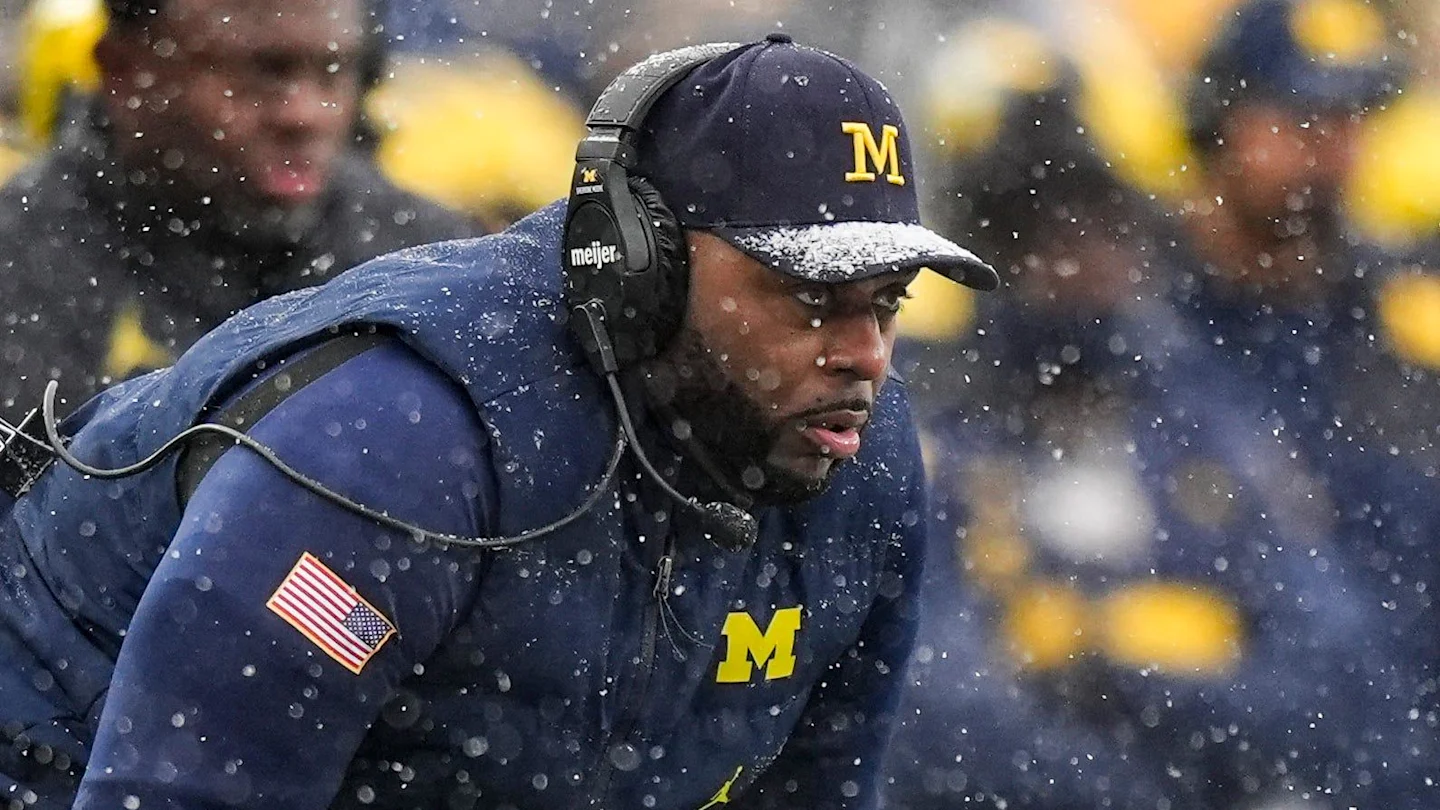
Kalen DeBoer has done his part to deny any interest in the Michigan head coaching vacancy, but that hasn’t stopped an army of vocal college football analysts from speculating that he could jump ship from Alabama and become the next head man of the Wolverines.
DeBoer signed an $87 million contract over eight years with Alabama early in 2024 as the man to replace Nick Saban, and so far the results have been up and down, but mostly positive.
However connected DeBoer may be to the Crimson Tide at this point in time, there are reportedly some serious power brokers linked to Michigan who are extending quite an invitation, according to ESPN analyst Greg McElroy.
What Michigan is offering Kalen DeBoer
“Michigan has been applying the full court press from the very beginning. Michigan has offered what I’ve been told is a blank check to try to get Kalen DeBoer out of Tuscaloosa and to Ann Arbor,” McElroy said on the Always College Football podcast.
That talk comes right as DeBoer has Alabama in the College Football Playoff, where he will seek to improve on his 0-2 record against Oklahoma in the first-round game on Friday.
“Now, the timing is unique here, because Kalen DeBoer is in the midst of preparing his team for [the playoff]. Frankly, I don’t think that Kalen DeBoer is ultimately going to take the job,” McElroy said.
“I don’t think Kalen DeBoer wants to take the job. I think Kalen DeBoer is happy at Alabama. I think the narrative that he’s unhappy, or he’s this or that or his family doesn’t like this or his family doesn’t like that, I think it’s untrue.”
Current insider reporting suggests that DeBoer’s representatives are seeking a contract extension from the school for the coach, but that remains a very fluid situation right now with no set conclusion.
But if DeBoer should lose to the Sooners again and get the Tide bounced from the playoff early?
Sure, it would raise the temperature around his tenure, but to suggest that it would be enough for him to abandon ship and try again at Michigan is unlikely.
Michigan will still pursue, however unlikely
“I think people are just grasping at straws, but it doesn’t mean that Michigan won’t continue to try to woo him,” McElroy said.
“It doesn’t mean they’re going to stop trying to go get him. They’re gonna try. Whatever they have to do, they’re gonna try, because there’s a lot of people that believe that Kalen DeBoer is one of the top coaches in America. So you go all in for that coach. And I think Michigan will continue to try to go all in on Kalen DeBoer.”
It stands to reason that Michigan, which finds itself in a coaching decision it didn’t expect to be in at this point in time, will do whatever they can to attract a big name.
But what if that big name already has a big job?
The feeling between Michigan and DeBoer is not mutual
“They can be interested. Is the interest actually reciprocated? I don’t know the answer to that, frankly. I frankly don’t think it is,” McElroy said.
“I think Kalen DeBoer, like I said, will be the head coach [at Alabama] moving forward, but he’s going to likely turn down more money at Michigan if he does end up staying in Tuscaloosa.
“At least, that’s what it sounds like right now. Because when I hear ‘blank check,’ you can interpret that how you want to interpret that.
“It sounds like, to me, Kalen DeBoer is going to be very wealthy on either side. But I do know that Kalen DeBoer is, right now, not interested in having a conversation with Michigan, and I do know this: that Michigan is not interested, yet, in accepting, the answer no.”
Read more from College Football HQ
NIL
Bankruptcy trustee presses case against Deion Sanders’ son Shilo
Dec. 17, 2025, 10:04 p.m. ET
- Shilo Sanders is in a legal dispute with a bankruptcy trustee over approximately $250,000 in alleged unauthorized fund transfers.
- The core issue is whether Sanders’ NIL earnings belong to him or to the bankruptcy estate for his creditors.
- Sanders filed for Chapter 7 bankruptcy in October 2023 to discharge over $11 million in debt from a 2022 civil court judgment.
The trustee in the bankruptcy case of former Colorado football player Shilo Sanders filed a response in court Dec. 17 that supports his argument that Sanders violated bankruptcy law by making unauthorized transfers to himself of approximately $250,000.
The court filing is the latest volley in bankruptcy case of Sanders, who filed a Chapter 7 petition in October 2023 seeking to get out of more than $11 million in debt.
The trustee in the case, David Wadsworth, sued Shilo Sanders in October, seeking recovery of the money and an accounting from Sanders. Sanders’ attorney then filed a motion to dismiss that complaint in November by arguing that the trustee had it all wrong.
The latest filing from Wadsworth’s attorney rebuts that notion as litigation related to the bankruptcy case continues on multiple fronts in addition to this one. Sanders’ debt stems from a civil court judgment in Dallas in 2022.
“The Defendants are wrong,” the trustee’s attorney, Peter Cal, said in court documents.
What is at issue in Shilo Sanders’ bankruptcy case this time?
The court-appointed trustee in this case is in charge of rounding up Sanders’ non-exempt assets for the bankruptcy estate to divide among his creditors. The trustee has alleged having trouble doing that and filed a complaint against Sanders related to money he traced in Sanders’ business accounts for earnings from his name, image and likeness (NIL). Those businesses are named as defendants with Sanders in the complaint – Big 21 and Headache Gang.
The big issue is who the money in question belongs to – the bankruptcy estate or Sanders. Sanders’ earnings before he filed the bankruptcy petition generally belong to the bankruptcy estate for the benefit of creditors, while earnings that came from work after the bankruptcy filing belong to Sanders.
Sanders’ attorney, Keri Riley, stated in court documents that the money in question belonged to Sanders because they were “post-petition earnings.”
The trustee disputed that in his response Dec. 17 and said such factual disputes can’t be resolved at this stage of the litigation.
Sanders “relies on the unsupported argument that all funds in the Big 21 Bank Account were post-petition earnings of the Debtor (Sanders),” the trustee’s attorney stated. “The Court should not consider the argument because it relies upon a factual assertion that is not included in the (trustee’s) Complaint.”
The trustee’s attorney then includes a footnote.
“Because there were funds in the Big 21 Bank Account on the Petition Date, the Defendants’ argument is demonstrably wrong,” the footnote states.
Timing of Shilo Sanders’ NIL earnings in dispute
The trustee’s attorney also noted that “even if the earnings are paid to the Debtor post-petition, they are considered prepetition earnings when they arose from a prepetition contractual interest.”
He argued the trustee pleaded his case well enough for the trustee’s complaint against Sanders to move forward. A bankruptcy judge will decide on that.
“It is more than plausible that at least certain of the post-petition deposits were based on the Debtor’s prepetition NIL contracts and, therefore, are subject to turnover,” the trustee’s filing states.
The trustee said he wants Sanders to “account for the distributions” after “improperly” exercising control over property of the bankruptcy estate.
How did the Shilo Sanders bankruptcy case originate?
A security guard at Sanders’ school in Dallas sued Sanders and his parents in 2016, alleging Shilo caused him permanent and severe injuries when he tried to confiscate his phone at school in 2015, when Shilo was 15. The parents were dismissed from the case before trial, but when the case finally went to trial in 2022, Shilo didn’t show up for it and got hit with a $11.89 million default judgment as a result.
The security guard, John Darjean, then moved to collect on that judgment in 2023, leading Sanders to file for bankruptcy to try to get out of it.
Darjean is fighting that with a separate complaint that alleges the debt should not be discharged in bankruptcy court because it stems from a “willful and malicious” injury. Sanders has claimed he acted in self-defense. That complaint remains pending, as does a separate complaint from Darjean that accuses Sanders of improperly omitting or concealing assets in his bankruptcy closures, which he denied.
What is Shilo Sanders doing now?
Sanders, 25, is out of football after being waived by the Tampa Bay Buccaneers before the season. He recently said he was moving to Miami and is pursuing other interests, such as acting and rap music.
He graduated from Jackson State before transferring to play for his dad at Colorado in 2023. Earlier this year, he also earned a master’s degree at Colorado in organizational leadership.
He is the middle of Deion Sanders’ three sons. His younger brother Shedeur is quarterback of the Cleveland Browns.
Follow reporter Brent Schrotenboer @Schrotenboer. Email: bschrotenb@usatoday.com
NIL
$45 million college football head coach reportedly offers Lane Kiffin unexpected role
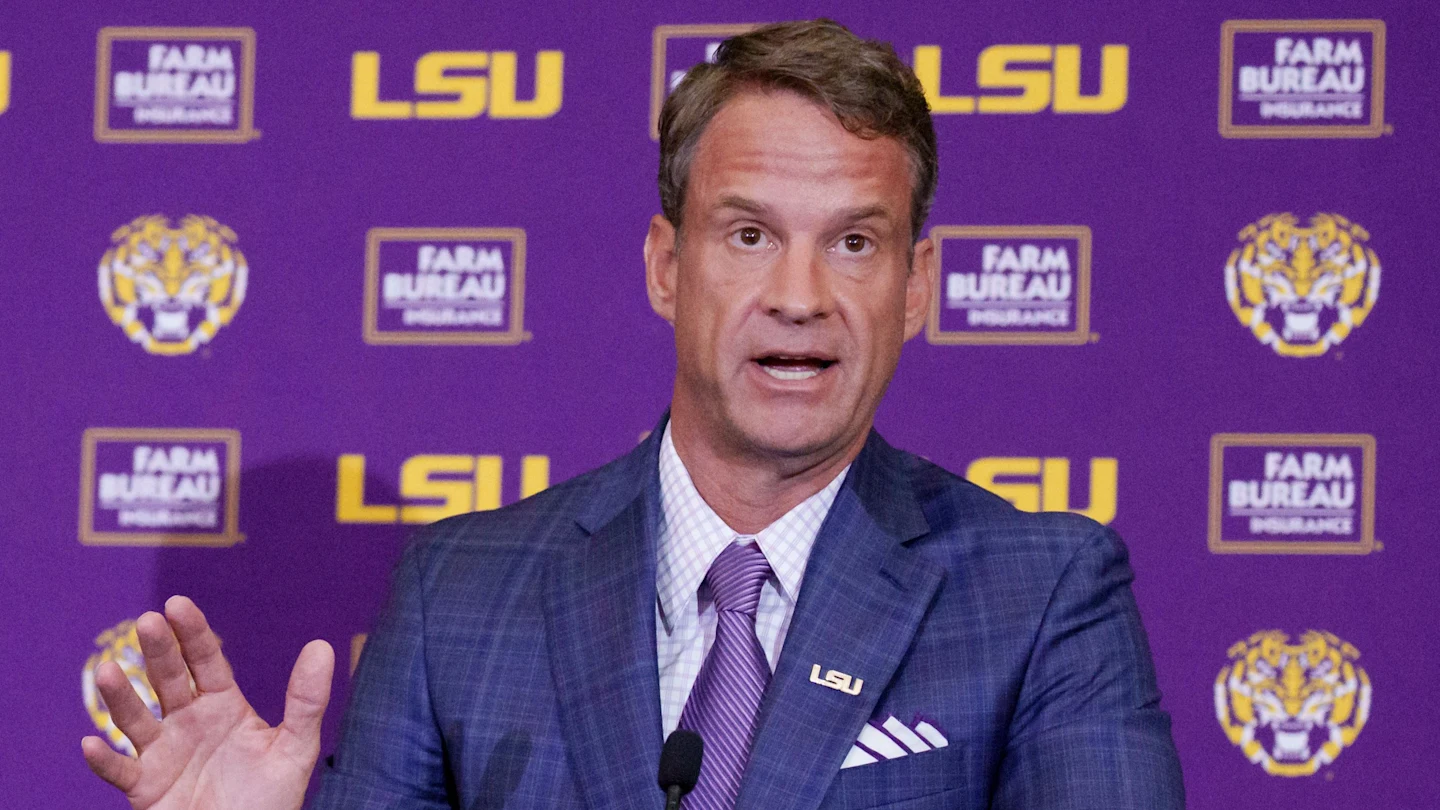
The College Football Playoff travels to Oxford on Saturday with an unusual subplot: an 11-win Ole Miss team entering the postseason without the coach who compiled that record, Lane Kiffin.
Meanwhile, Tulane, which Ole Miss faces Saturday at 3:30 p.m. ET at Vaught-Hemingway Stadium, also has an outgoing coach, as Jon Sumrall has opted to finish the season in New Orleans before taking over at Florida.
Kiffin’s 2025 Rebels closed the regular season at 11–1, securing a CFP berth behind a high-powered offense that averaged 498.1 total yards per game, the third-most in college football.
Within days of the Egg Bowl, Kiffin accepted LSU’s offer, a reported seven-year contract worth roughly $91 million, and announced he would not coach Ole Miss in the playoff.
Ole Miss promptly elevated defensive coordinator Pete Golding to lead the program into the bracket.
On Wednesday, Sumrall broke down the matchup and joked that he had offered Kiffin a spot in Tulane’s coaches’ box.
“They’ve got a lot more stability for the game than people realize. They’re going to be who they’ve been; they’re just not going to have Lane on the sideline,” Sumrall said. “I’ve reached out to Lane to see if he wants to sit in our coaches’ box for the game, but he hasn’t given me an answer yet.”

Tulane arrives after winning the American Athletic Conference and finishing 11–2.
The Green Wave boasts one of the nation’s best turnover margins (+10) and a defense that has tightened steadily since an early setback in Oxford on Sept. 20, a 45–10 loss.
Adding to the narrative, Sumrall, who signed a reported six-year, roughly $45 million deal to become Florida’s next head coach, has said he will remain with Tulane through the postseason before joining the Gators full-time.
Tulane has already designated passing-game coordinator Will Hall as Sumrall’s successor once the playoff run concludes.
This moment reflects a new normal in college football’s accelerated coaching market, with major hires unfolding as teams prepare for postseason play.
Read More at College Football HQ
- $3.7 million college football head coach named clear candidate for Michigan vacancy
- College football program signs $1.2 million deal with NFL legend
- College Football Playoff team losing all-conference player to transfer portal
- $2.1 million college football QB announces return to Big Ten program
NIL
$36 million college football coach reportedly out of race for Michigan vacancy

Michigan is the last remaining Power Four college football program to find a new head coach in the 2026 cycle.
The Wolverines fired head coach Sherrone Moore on Dec. 10 with cause and are now one week into the coaching search. Alabama head coach Kalen DeBoer, Arizona State head coach Kenny Dillingham, and Missouri head coach Eli Drinkwitz are among those being floated as potential replacements.
One name that previously received attention for the vacancy was Washington head coach Jedd Fisch. On3 and ESPN college football insider Josh Pate reported Fisch’s interest in the Michigan head coaching vacancy has declined in the last few days.
“There’s been some sentiment today that maybe Jedd Fisch’s name has cooled,” Pate said. “I think that’s accurate. The critical take-home points are that I don’t know if Jedd Fisch is going to be a factor in the Michigan search moving forward… I don’t think Jedd Fisch is going to be an option for them.”

Fisch’s waning interest is a relief to Washington, as it is all too familiar with head coaches leaving for other jobs. The Huskies lost Kalen DeBoer to Alabama in the 2024 offseason when Nick Saban announced his retirement from the Crimson Tide.
The Florida alumnus spent the first 24 seasons in the coaching ranks as an assistant at a high school, in the Arena Football League, at six different NFL franchises and five different college football programs. He served as Michigan’s passing game coordinator in 2015 and 2016 under Jim Harbaugh, part of the reason he is linked to the Wolverines’ current opening.
The only head-coaching capacity Fisch had served in before he took the Arizona vacancy was as UCLA’s interim coach in the 2017 Cactus Bowl against Kansas State.
Arizona finished 1-11 in 2021, the lone win against California (10-3) in November. The Wildcats improved to 5-7 in 2022, a record that included an upset victory over a ranked UCLA team. Fisch followed up a 3-3 start in 2023 with seven consecutive wins, including an Alamo Bowl win over Oklahoma (38-24).
Fisch filled the Washington vacancy left by DeBoer in the 2024 offseason. An up-and-down first season led to a 6-7 season, capped by a Sun Bowl loss to Louisville (35-34).
The Huskies put together a stronger effort in 2025. Washington concluded the regular season at 8-4 and defeated Boise State (38-10) in the LA Bowl in SoFi Stadium.
NIL
Eli Drinkwitz: NIL Buyouts And Tampering Are Making ‘College Football Sick’

Just two weeks away from the transfer portal opening in college football, coaches across the country are trying to maintain a roster while opposing schools look for any possible way to steal a player, no matter if it comes with paying a buyout.
On Monday, we all witnessed multiple starting quarterbacks decide to declare their intentions to enter the portal. This included DJ Lagway, Dylan Raiola, Brendan Sorsby and Sam Leavitt.
All of these guys would have had the opportunity to play next season at their current schools, with maybe Lagway being an outlier because of the new staff in Gainesville. But, we are certainly in a drastically different era of college athletics.
Transfer Portal Carousel: Quarterbacks, NIL Deals And The Rise Of A WILD College Football Free Agency Market
“There’s a warning that the system that we’re in is really sick right now, and college football is sick,” Eli Drinkwitz said. “There’s showing signs of this thing really cracking moving forward, and we need to get something under control.”
Contracts: How ‘Buyouts’ Are Handled, Or Trying To Be
At the moment, there are players deciding that entering the transfer portal is the best route to take when it comes to cashing in, with chances of making it to the NFL not guaranteed. This also means that certain players are deciding to enter the transfer portal while still under contract with a school like Missouri.
In reality, there are no rules at the moment. Some might think the new College Sports Commission is setting guidelines for future enforcement, but there is still no agreement signed that would have them running the show.
After Sherrone Moore Scandal, Michigan Board Orders Investigation Into Athletic Department
We have seen players re-signing with schools, while others are being shopped around to others. So, what happens if an athlete has signed an agreement with one school, but is looking at the opportunity of transferring?
Here’s the best way to explain what we’re seeing right now in college athletics when it comes to a player leaving one school after already being paid through a “front-loaded” deal before new rules were put into place over the summer.
Let Me Try To Summarize It
“Hey, College Player, you’re being paid $4 million. Here’s $3.8 million before the house settlement is passed. Once you hit the portal, we can terminate the deal, but if it’s terminated because you left, you owe us the money. If another collective cuts the check at the new school, the player would then have that taken out of their new school’s contract.
“And, if the player decides to balk at paying their previous school back, this is where lawsuits could continue. The athletes have already taken this money, but they still owe their previous school for the contract that has not been fulfilled. Somebody has to pay back that money, or what they agreed to under the particular contract.”
I hope that explains it, for the folks still trying to grasp all this.
As we’ve reported before, this is where certain contract language will have “buyout” clauses. But, who is enforcing this? This is what Eli Drinkwitz was trying to emphasize on Tuesday.
“I don’t know, some of the players that have entered the portal were under two-year contracts, and their anticipation is that another school will pay their buyout, or they’ll pay it back themselves,” Drinkwitz told reporters. “So, you know, contracts are contracts. I think there’s been an assumption that, not gonna go there. So we’ll see, we’ll see, you know. Right now, there are perceived rules, and then we’ll figure out what are the real rules moving forward.”
As you can tell, there is no clarity, and as much as some of these coaches would have loved the help of Congress, they might end up waiting a while before enforcement can actually take place.
It’s No Longer Tampering. College Athletes Are Being Shopped
Most coaches in this era would rather handle situations behind the scenes, rather than calling out an opposing school during a press conference setting.
Why? Because there is “tampering” going on at every school. Now, it might not be as rampant at some compared to others, but it’s happening. This could come in the form of a grad-assistant reaching out to the high school coach of a player enrolled at another school.
It happens when the player is not directly contacted, but goes through a third party. Agents are so prevalent in college athletics that they are also shopping players around to the highest bidder. And, we’re not talking about well-run companies that have made a name for themselves over the past six years.
The term “street agent” is used a lot in the industry, which is essentially a person who is working on a campus, acting as if they are running the business affairs of a particular athlete. They have zero training, besides being able to operate a social media account.
But, some of these athletes know no better, and will trust their futures with someone who acts as though they have their best interest at heart. I’m sorry, but having your buddy handle your business affairs, and most importantly life decisions, is not the smartest move.
“You know, tampering is at, I mean, the highest level. There is no such thing as tampering. It’s just, because there’s nobody that’s been punished for tampering. And so everybody on my roster is being called,” Drinkwitz said. “I had a dad call me and say that, and I called the head coaches at their schools, that this school and this school, and this school called, they are offering this much money.
“And, you know, you’re putting a lot of pressure on young men. You know, we’re paying them as 1099 employees, a lot of money, not offering any type of retirement, not offering any type of health benefits.”
I think it’s fair to say we have a long way to go, as schools are still trying to navigate this era of college athletics.
NIL
Bowl Season Attendance Plummets As Star Players Opt Out, Teams Decline Invites
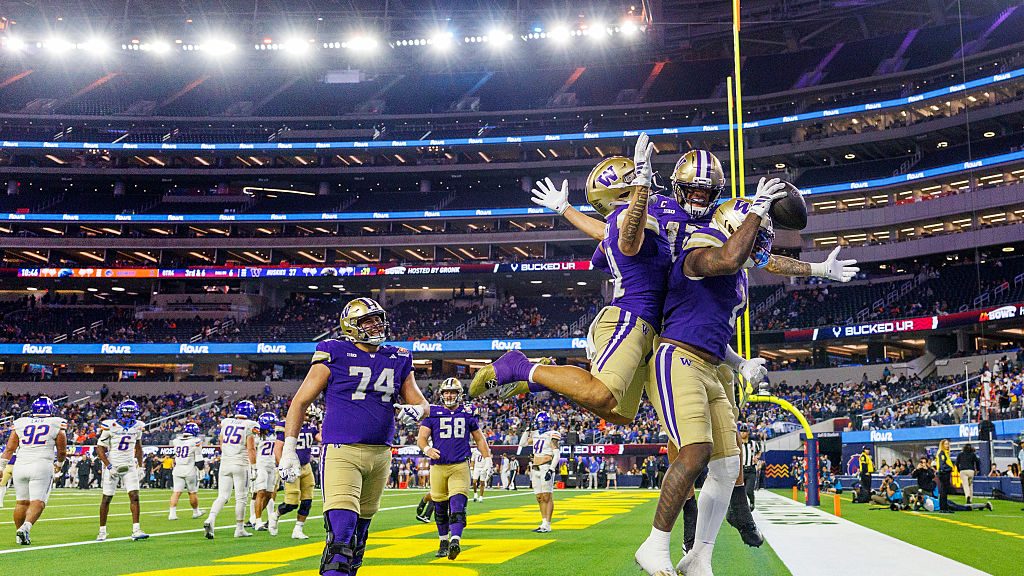
Fighting Irish choose to forgo postseason play after being left out of College Football Playoff, as LA Bowl attendance drops
Remember the good old days of college football bowl season?
Almost every day throughout December, there were good, fun bowl games pitting quality teams against each other. There was no debate over whether star players would be involved, no “opt outs,” no teams turning down invitations. Lesser games still had big attendance figures, as fans built winter vacations around warmer destinations. It built up throughout the month, culminating in the key bowl games around New Year’s Day. The Rose Bowl served as a de facto end of the season, with the biggest and most historic stage.
Now? That’s all a distant relic of a difficult-to-remember past. And it’s only going to get worse.
The start to the 2025 bowl season has been a strong reminder that the old days of college football are never coming back. In some respects, that’s for the better. In some, it’s for the worse. For example, in the days after the end of the conference championship games, discussion focused primarily on the Notre Dame Fighting Irish.
The Irish were left out of the College Football Playoff in favor of the Alabama Crimson Tide and Miami Hurricanes. The committee, as it so often does, simply made up its criteria on the fly, engaged in its usual lack of logical consistency, and predetermined the outcomes it wanted. In short, Notre Dame was treated unfairly. Instead of accepting that, however, the Irish took their ball and went home.
RELATED: Would This Proposal Fix College Football And Broken Playoff Committee?
They announced on social media they would decline any bowl invitation, choosing to forgo important postgame practices and more development time as a team. And while it’s easy to criticize, that type of decision is only going to become more common. Because there’s simply no point to most bowls anymore.

Notre Dame head football coach Marcus Freeman. MICHAEL CLUBB/SOUTH BEND TRIBUNE / USA TODAY NETWORK via Imagn Images
College Football Playoff, NIL, NFL, Ending Bowl Season For Good
It wasn’t just Notre Dame. One of the first higher-profile bowl games of the season was the LA Bowl pitting the Washington Huskies against the Boise State Broncos at SoFi Stadium. Warm weather destination, two schools with large, dedicated fan bases, a gigantic brand-new state-of-the-art venue, and…nobody showed up.
The official announced attendance was just more than 23,000, but it sure seemed like less than that. Crowd shots before kickoff showed dozens of fans sprinkled around the lower bowl, with the middle and upper sections virtually empty.
It filled in more as the game started, but just barely.
Then there’s the Alamo Bowl, with 9-3 USC taking on 8-4 TCU in San Antonio. In prior decades, it wouldn’t be a point of discussion how many big-name players for SC would be available. Yet sure enough, head coach Lincoln Riley announced over the weekend that several starters would not be participating.
Safety Kamari Ramsey is out after declaring for the NFL Draft. So is Biletnikoff Award winner Makai Lemon. And circus catch specialist Ja’kobi Lane. Starting tight end Lake McRee won’t play, neither will starting linebacker Eric Gentry. This isn’t an outlier, it’s become common practice across the sport. Starting players heading for the NFL sitting out instead of playing in a relatively decent bowl game. And the reasons make sense; why jeopardize your health for an exhibition game that isn’t the College Football Playoff?
It’s the same for fans too. Why buy tickets for an exhibition bowl game where half the starters from the regular season aren’t playing? These are valid questions, and it raises the more important overarching one: what is the future of bowl games?
Notre Dame, one of the game’s biggest brand names isn’t going to play in a bowl game at all. Star players left and right won’t be playing. Nobody’s buying tickets to half these games anymore to see backups taking on backups. NIL and the transfer portal makes it so that many players will avoid bowls, since they’re halfway out the door already anyway.
It’s just not sustainable, and with the game trending in the direction it’s going, there’s little to suggest it’s ever going to go back to the way it was.
Expanding the College Football Playoff isn’t a popular choice, for good reason. But it might be the only path forward to allow more teams, players and fanbases to continue after the regular season. Home playoff games in a 16-team or 20-team or whatever it is field would sell out stadiums and keep players engaged. Bowls could be revived in importance. Ratings would be huge. And most importantly, more money would get infused into the sport.
Like it or not, that’s what college football runs on these days. And the current bowl system isn’t printing enough of it.
-
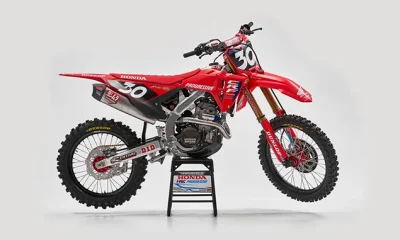
 Motorsports3 weeks ago
Motorsports3 weeks agoJo Shimoda Undergoes Back Surgery
-

 NIL2 weeks ago
NIL2 weeks agoBowl Projections: ESPN predicts 12-team College Football Playoff bracket, full bowl slate after Week 14
-

 Motorsports1 week ago
Motorsports1 week agoSoundGear Named Entitlement Sponsor of Spears CARS Tour Southwest Opener
-

 Rec Sports3 weeks ago
Rec Sports3 weeks agoHow this startup (and a KC sports icon) turned young players into card-carrying legends overnight
-
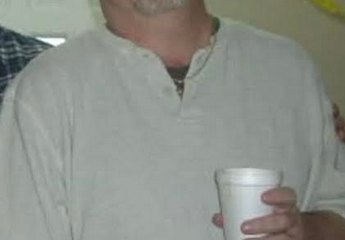
 Rec Sports3 weeks ago
Rec Sports3 weeks agoRobert “Bobby” Lewis Hardin, 56
-
Sports3 weeks ago
Wisconsin volleyball sweeps Minnesota with ease in ranked rivalry win
-

 Motorsports3 weeks ago
Motorsports3 weeks agoPohlman admits ‘there might be some spats’ as he pushes to get Kyle Busch winning again
-

 Motorsports1 week ago
Motorsports1 week agoDonny Schatz finds new home for 2026, inks full-time deal with CJB Motorsports – InForum
-
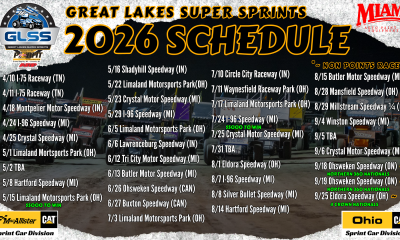
 Motorsports3 weeks ago
Motorsports3 weeks agoIncreased Purses, 19 Different Tracks Highlight 2026 Great Lakes Super Sprints Schedule – Speedway Digest
-
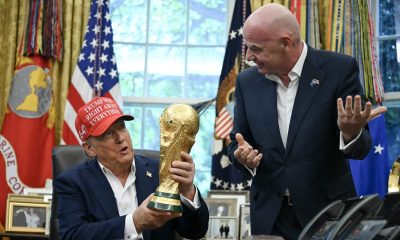
 Rec Sports2 weeks ago
Rec Sports2 weeks agoHow Donald Trump became FIFA’s ‘soccer president’ long before World Cup draw































